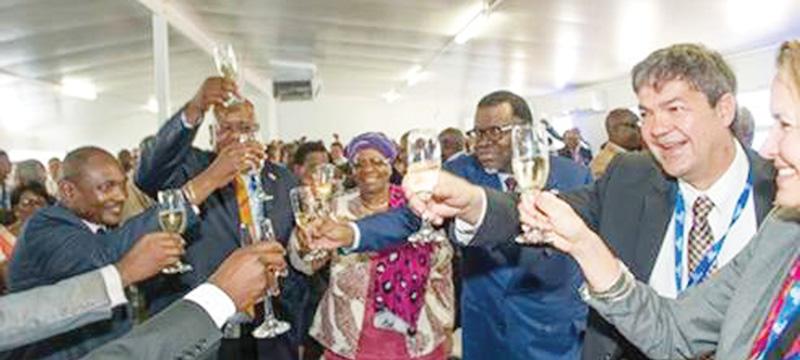
Chamber of Mines confirms its stance on value addition of local minerals

Following a Cabinet decision earlier this month prohibiting the export of unprocessed lithium and other essential minerals, the Chamber of Mines in Namibia said this week that it supports local value addition to boost the economy and create jobs.
As quoted in the Cabinet decisions issued by the Minister of Information and Communication Technology, “Cabinet approved the prohibition for the export of certain critical minerals such as unprocessed crushed lithium ore, cobalt manganese, graphite, and rare earth elements, and Cabinet approved that smaller quantities of the abovelisted minerals may be allowed for export at the discretion of the Minister of Mines and Energy subject to Cabinet endorsement.”
“The Chamber welcomes the Cabinet decision on the understanding that the Cabinet is referring to the ban on the export of mineral ores, meaning ores of all the minerals mentioned in the Cabinet decision,” according to the Chamber of Mines.
Meanwhile, the Chamber’s Chief Executive, Veston Malango, said in an official statement on Monday that the government must control and regulate the export of unprocessed essential minerals to support job creation and grow the economy in line with the African Mining Vision.
Malango further justified that the processing and value addition of all minerals, including critical minerals, is a commonly accepted narrative in Namibia.
“The Chamber of Mines thus recognizes that this directive intends to ensure that Namibia does not lose out on any potential local value addition,” it continued.
As such, the measures taken by the government do not inhibit the valuable work done by companies in Namibia that intend to establish mining operations and processing facilities, according to the Chamber.
However, the Chamber noted that it is concerned that the requirement for an endorsement by the Cabinet on exports of ore in small quantities may “unintentionally” delay genuine test work carried out by its members for purposes of critical metallurgical test work required in the design of the much-needed processing plants in Namibia.
Malango continued that as a result, the Chamber will engage the Minister of Mines and Energy proactively so that mineral exports for such purposes are not “unreasonably” delayed.
On the other hand, Chamber of Mines President Zebra Kasete stressed that the Cabinet directive would not have any immediate repercussions on the plans of Chamber members, as they all have plans to add value locally to critical minerals, at least to the concentrate level and retain jobs in Namibia.
Said Kasete: “The Chamber will proactively engage government to collectively identify processing and value addition opportunities for Namibia’s critical minerals, and what enablers are necessary to make Namibia an attractive destination for investment into value addition opportunities.”











































